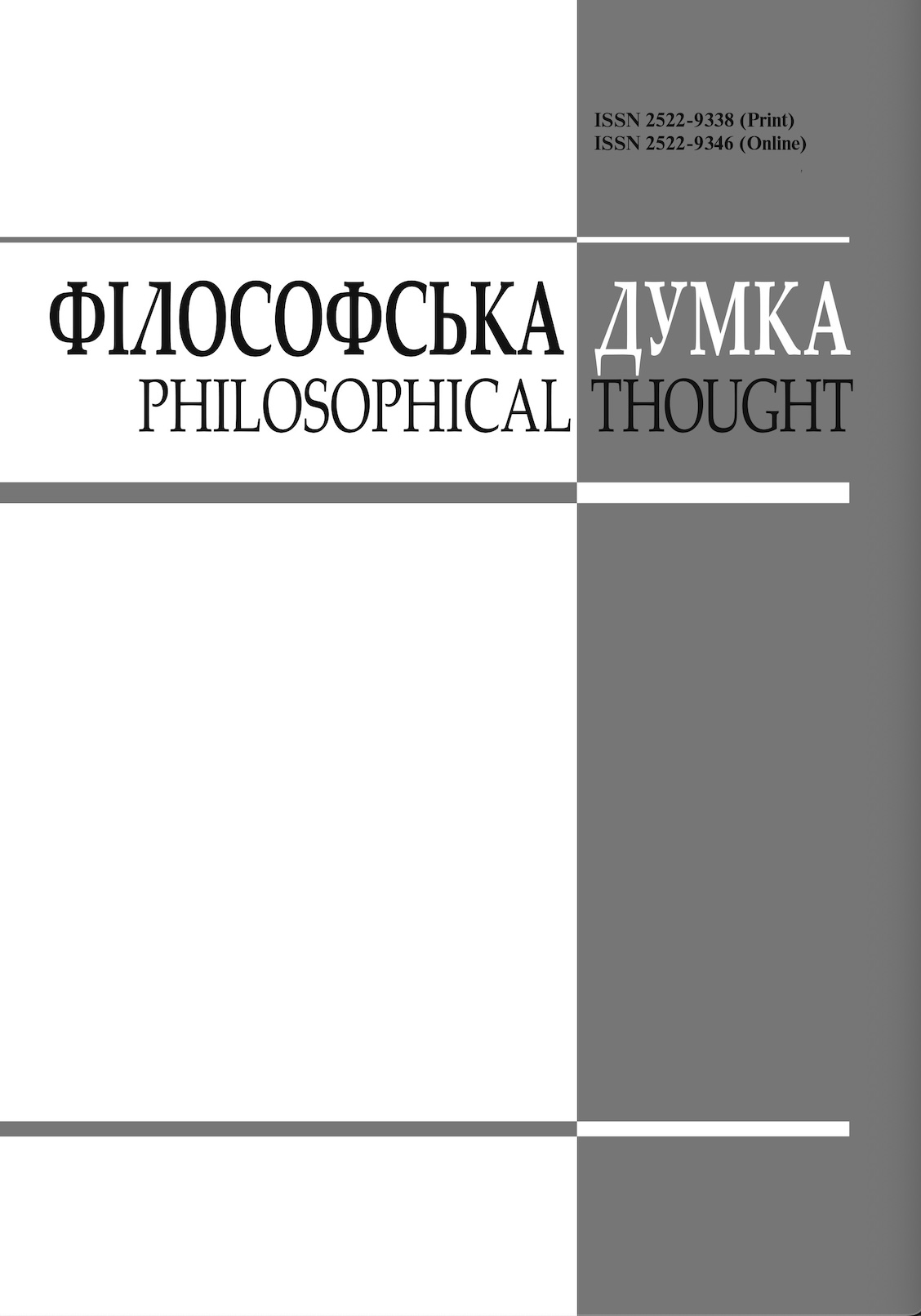THE PHILOSOPHICAL-ANTHROPOLOGICAL IDEA OF THE WORLD AS A THEORETICAL PROGRAM: THE BEING OF THE COGNITIVE RELATION
DOI:
https://doi.org/10.15407/fd2024.04.062Keywords:
philosophical anthropology, knowledge, human worldAbstract
The article examines some features of the philosophical-anthropological approach to the cognitive activity of a person, which is presented in it primarily as the «of-being-relationship» of a person to his world. The peculiarities of this approach to cognition are primarily due to the following. All contemporary philosophical trends, such as the transcendental-critical approach, evolutionary theory, existentialism, or various representatives of the linguistic turn, always come from the (cognitive) achievements of culture (intentional, intersubjectively constituted, immersed in the specifics of the subjectivity of consciousness, language, etc. ) and from there they try to investigate the factors enabling the subject's achievements; or, like the evolutionary theory, ultimately level out the essential difference in the principle of organization of human life, limiting it to the adaptive self-preservation of the organism. The philosophical-anthropological approach is based on the laws of the organic as a prerequisite for all cultural formations, from the vital process, and precisely from its fateful breakthrough for the human figure, from which it tries to derive the cognitive relationship as one of the mediators, which contributes to overcoming this gap and restoring the vital cycle in the human world. Accordingly, the cognitive relationship acts as a relationship that emerges in the very being, woven into the specific functionality of a living being, a person. And reflexively decisive here is not "exclusively" the internal status of the subject-object-splitting of the fact of knowledge, but its, so to speak, fully cognitively capable presence as an essential relation. The being of cognition does not arise, it only "does not disappear"; it "accompanies" the entire process of anthropogenesis, during which only an increase in the intensity of the unity of being is observed. As a conclusion, it would be appropriate to demand: scientific thinking, by its type of organization and objective intent, must resort to methodological and conceptual self-criticism, and pay attention precisely to the substantive importance of its anthropological foundations, that is, not simply to certain personal or community circumstances in which a scientist or the scientific community work, and on the anthropic principle as an internal principle, on the basis of which the constitutive interpretation of knowledge as such takes place.
References
Fischer, J. (2006). Der Identitätskern der Philosophischen Anthropologie (Scheler, Plessner, Gehlen). In: Philosophische Anthropologie. Band 1. Herausgegeben von Hans-Peter Krüger und Gesa Lindeman. Berlin: Akademie Verlag GmbH.
https://doi.org/10.1524/9783050047782.63
Gabriel, M. (2013). Existenz, realistisch gedacht. Retrieved from: https://silo.tips/download/existenz-realistisch-gedacht
Gabriel, M. (2021). Warum es die Welt nicht gibt. Ungekürtzte Ausgabe im Ullstein Taschenbuch, 6. Auflage. Ullstein Buchverlage.
Plessner, H. (2019). Die physiologische Erklärung des Verhaltens. Eine Kritik an der Theorie Pawlows (1935). In: H. Plessner, Conditio humana. Gesammelte Schriften VIII, 4. Auflage. Suhrkamp Verlag
Downloads
-
PDF (Українська)
Downloads: 95
Published
How to Cite
Issue
Section
License
Authors who publish with this journal agree to the following terms:
- Authors retain copyright and grant the journal right of first publication.
- Authors are able to enter into separate, additional contractual arrangements for the non-exclusive distribution of the journal's published version of the work (e.g., post it to an institutional repository or publish it in a book), with an acknowledgement of its initial publication in this journal.
- Authors are permitted and encouraged to post their work online (e.g., in institutional repositories or on their website) prior to and during the submission process, as it can lead to productive exchanges, as well as earlier and greater citation of published work (See The Effect of Open Access).


